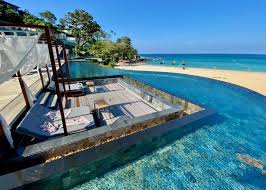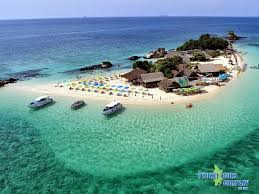Retiring in Thailand in 2026: Pros, Cons, and Costs
Retiring in Thailand
For decades, Thailand has been a dream destination for retirees seeking warm weather, beautiful beaches, and affordable living. In 2026, Thailand continues to rank among the best countries to retire in the world. But what does retirement in Thailand really look like? This guide covers the pros and cons of retiring in Thailand, the cost of living, visa options, healthcare, and the best places to buy property as a retiree.

Why Retire in Thailand?
Thailand offers retirees a unique mix of lifestyle and affordability. Compared to Europe, the cost of housing, healthcare, and daily expenses is much lower, while quality of life is often higher.

- Climate: Year-round sunshine and tropical weather.
- Affordability: Comfortable living on €1,200–€1,800 per month.
- Healthcare: World-class hospitals at a fraction of European costs.
- Community: Large expat retiree populations in Bangkok, Phuket, Hua Hin, and Chiang Mai.
Pros of Retiring in Thailand
- Low cost of living: Rent a modern condo for €400–€900 per month, or own a villa in Phuket from €450,000.
- Excellent healthcare: Private hospitals like Bumrungrad (Bangkok) and Bangkok Hospital (Phuket) are internationally accredited.
- Lifestyle & culture: Beaches, temples, yoga retreats, and a thriving food scene.
- Friendly visas: Special retirement visas make long-term stays simple for those over 50.
Cons of Retiring in Thailand
- Visa renewals: Retirement visas require financial proof and annual extensions.
- Language barrier: English is widely spoken in major cities, but not in rural areas.
- Heat & humidity: The tropical climate is not for everyone.
- Property ownership rules: Foreigners can’t directly own land (leasehold or condo freehold are the solutions).

Cost of Retiring in Thailand (2026)
On average, retirees spend far less than in Europe while maintaining a high quality of life:
- Housing: €300–€900/month for condos, €1,000–€2,000/month for villas with pools.
- Food: €150–€400/month thanks to affordable local dining.
- Healthcare insurance: €20–€100/month.
- Transport: €10–€50/month for local travel.
- Lifestyle & leisure: €50–€150/month.
Total monthly budget: €900–€1,500 for a comfortable lifestyle, compared to €2,000–€4,500 in many European capitals.
Visa Options for Retirees
Thailand offers a specific visa for retirees:
- Retirement Visa (O-A / O-X): Available to those over 50, requires financial proof (bank deposit of ~€23,000 or income of ~€1,800/month).
- Elite Visa: Long-term residency options (5, 10, or 20 years) with simplified entry procedures.

Best Places to Retire in Thailand
- Phuket: Villas, beaches, hospitals, and a big expat community.
- Bangkok: Perfect for retirees who love city life, shopping, and premium hospitals.
- Hua Hin: Coastal town with a relaxed atmosphere, popular with European retirees.
- Chiang Mai: Affordable, cultural hub in the north, with cooler weather and strong expat networks.
Real Estate for Retirees
Most retirees choose either a condo (freehold) or a villa (leasehold). Condos in Bangkok start from €150,000, while villas in Phuket and Koh Samui start from €200,000. See our listings: all Thailand properties.

Conclusion
Retiring in Thailand in 2026 offers sunshine, affordability, and a thriving community. While there are some visa and ownership limitations, the low cost of living, excellent healthcare, and cultural richness make it one of the best destinations globally. For retirees who also want to invest, Thailand offers both a better lifestyle and profitable real estate opportunities.
👉 Ready to start your retirement journey? Explore retirement-friendly properties in Thailand today with TwinsEstate.



